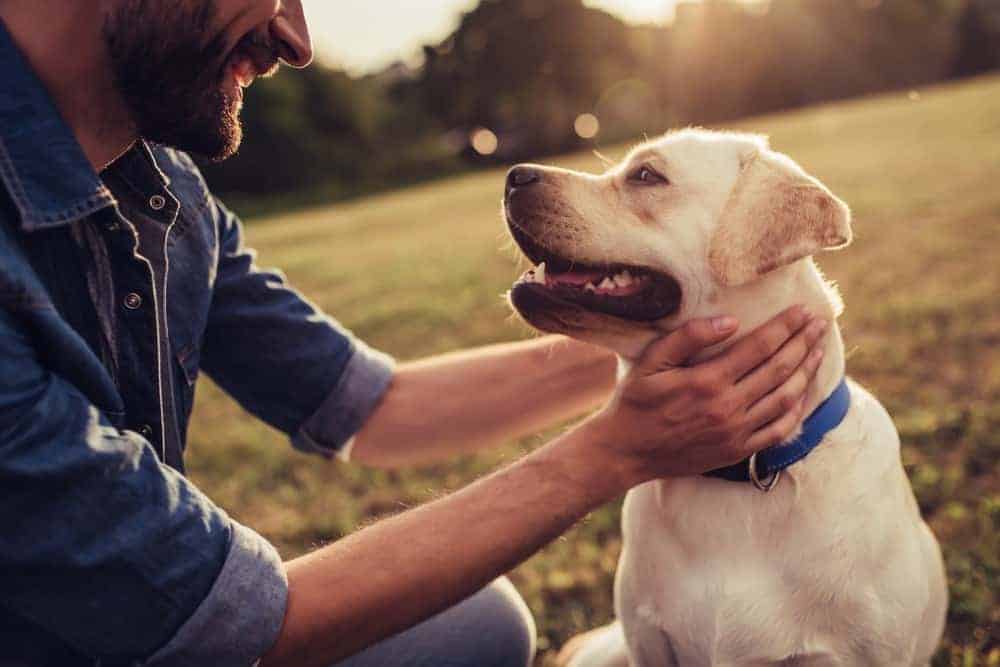Roughly 26 per cent of the UK population has a dog and there are around 9.9 million pet dogs in the country. That’s in comparison to 24 per cent of UK adults being cat owners, with 10.9 million pet cats in the country (most cat owners have more than one cat, it seems). That’s a lot of dog owners. If you count yourself among them, congratulations – you’ve made a good decision. A dog can be a friend for life, a valuable companion, and a great way to teach kids (and adults) about compassion.

That said, there are definitely right and wrong ways to look after dogs. Do it right and you’ll not only make your furry friend happy, but you’ll also significantly extend their lifespan. Look after them wrong and you could cause significant damage. If you’re new to owning a dog, there’s plenty of stuff you need to know before you get started. That’s why we’ve compiled a handy guide on how you can look after your new friend. Here’s everything you need to know about owning a dog as a beginner.
Name your dog well
Although you might be tempted to opt for a joke name for your dog, you’ll regret it when you get further down the line. Of course, your dog won’t know that you’ve given them a silly name, but explaining this to family members, friends, and vets is not going to be fun for you. Your dog’s name should be easy to call out and remember, affectionate, and respectful. It’s also not a good idea to name your dog things that sound like training commands you might give them.
Your dog is going to want walks, come rain or shine
When it’s pouring down with rain outside, that’s no excuse not to take your dog for a walk. They’re going to want to move around, so if you’re seriously opposed to going out in adverse weather conditions then you will need to supply another method of exercise for them. If you don’t mind walking, it’s a good idea to invest in a waterproof dog coat. You won’t have fun if your dog gets wet while walking and neither will they. Make sure you’re ready for all walking eventualities with your dog.
You’ll need to get a handle on their diet
It might be tempting to simply buy the cheapest or most convenient dog food you can find and leave it there, but this would be a mistake. Your dog has a very specific diet that should be adhered to at all times. This also means not giving your dog table scraps, no matter how adorable they look when they’re begging you. Make sure you know what’s good for your dog and what isn’t, because you want to be kind to your furry friend and because fewer vet visits are always better.
Spend time with your dog – but know when to quit
A pet is not there for your amusement, and they are not there whenever you need them to be. Just like any animal-human beings included – animals sometimes need alone time and don’t want to be bothered. This goes double if you have young children. Teaching them about the dog’s boundaries is crucial, and respecting them yourself is also important. When your dog wants to be left alone, honour that wish. It might not be regular, but they’ll love you more for it.
Train your dog
You will definitely need to train your dog. Basic commands like “sit”, “stay”, and “down” are essential; dogs need to be taught how to act around strangers, so these commands will help you to socialise your dog and make both them and you feel comfortable around those you don’t know and those you do. Crate-training may be cruel, but there are still lots of alternative options for toilet-training your dog, and if you don’t want to be cleaning up messes constantly then this is an essential step.
Don’t be afraid to assert yourself
When you’re training your dog – and when you need to negatively reinforce bad behaviour – don’t be afraid to step up and get a little stern. Use a firm tone of voice so that your dog knows they’ve done something they shouldn’t have. Don’t shout – loudness won’t be effective in training your dog. Just be authoritative, use clear body language, and make sure your dog doesn’t do what they’ve done again. You have to assert who’s boss in the house.
Do not hurt your dog
We can’t stress this enough: do not physically (or emotionally) damage your dog. There is no circumstance under which this is acceptable. Disregard any notions you might have picked up about “tough love” or about the way the family has always done it. Hurting a dog is cruel and unnecessary. You can train your dog perfectly well with strategic use of treats, body language, and reinforcement. Pain is a totally unneeded way to reinforce training and it will not reflect well on you.
Love your time with your dog – but be prepared
The average life expectancy of a domestic dog varies from breed to breed. Some dogs live as long as fourteen, while others rarely make it past nine years old. Whatever the life expectancy of your dog may be, make sure you love and appreciate your time with your pet. When the time does come, it can be a good way to help children understand mortality; everything sadly must come to an end, but that doesn’t mean you can’t have an absolutely wonderful time with your dog while you have them.